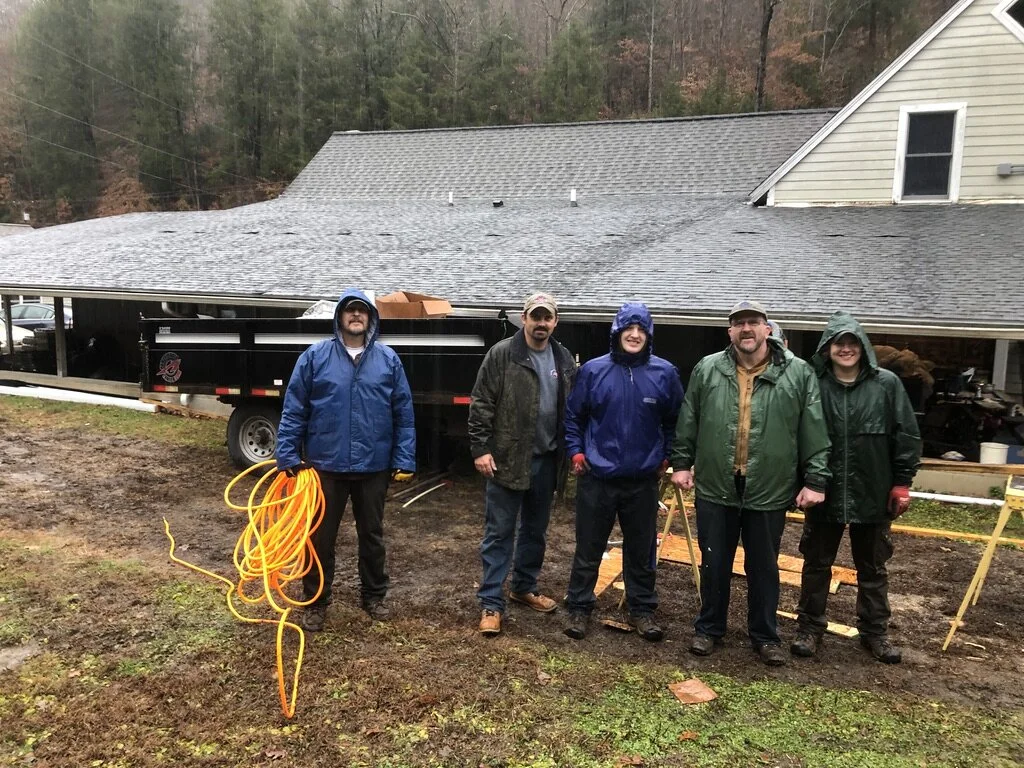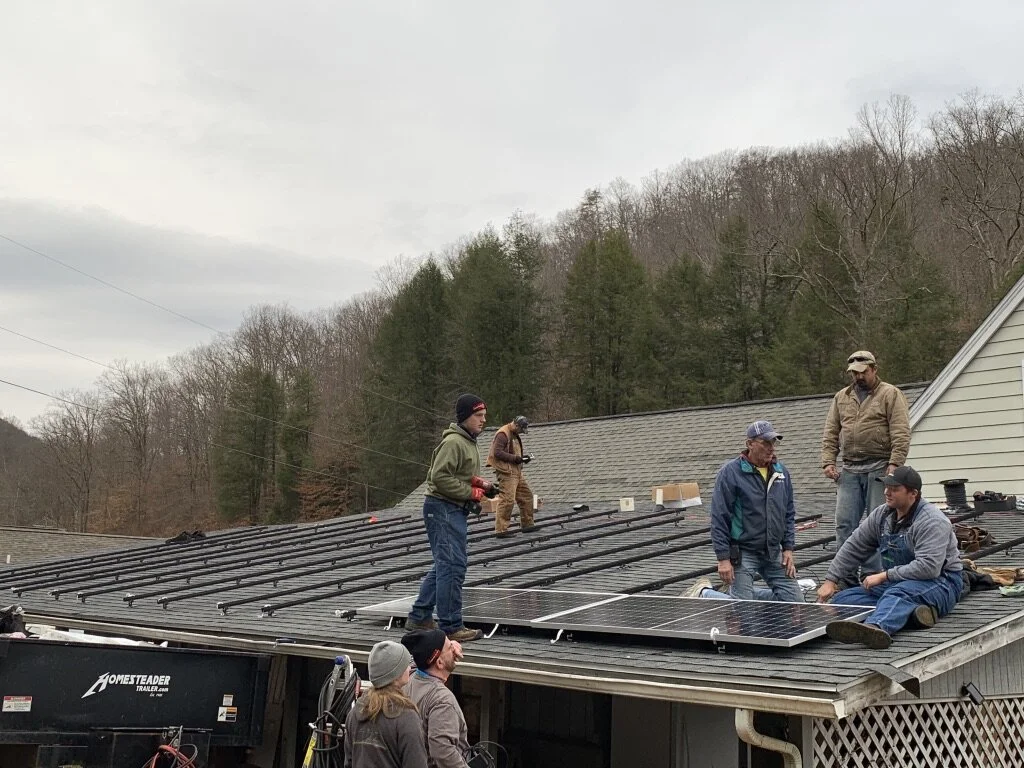Why a Small Farm in Eastern KY Invested in Solar Energy:
My journey into solar power began about three years ago when the Public Service Commission (PSC) held yet another rate increase hearing in Hazard, KY. If my memory serves me well, our electric utility provider KY Power had applied for another thirty percent increase on the electric rates. Wearing my Executive Director of HOMES, Inc. hat that evening, I was able to register my concerns in the form of public comments, but most importantly, I learned a lot. Finally, things came together in my mind that evening. I realized that KY Power is not the bad guy. The real reason behind these frequent rate increases is systemic in nature. I learned that KY Power is an investor-owned utility company, as such, the investors are guaranteed a certain rate of return on their investment. This structure worked fine as long as the big customers, the deep mines, were here and operating. Today, the deep mines are mostly gone now and few expect them to ever return. When the mines left so did a significant number of people left seeking other jobs. With the mines no longer in operation, no longer purchasing huge quantities of electricity and fewer people living here, the investor-owned structure of the utility company demands that the utility company makes a profit selling less electricity to who ever is left here. Who is left here? Small businesses and the residential customers remain. That night I came to the frightening conclusion that this rate increases and future rate increases are inevitable.
I decided to research ways to be less dependent on the utility company. Solar rose to the top of the list though I must confess that I was a bit skeptical that solar could actually save money. I contacted MACED’s E3 energy team member Josh Bills to help me understand if solar energy could help HOMES, Inc save money on our electric bills. Fast forward two years and HOMES reduced our electric bills by 67 percent by investing in solar energy!
Seeing is believing, being convinced with results at my work place I once again contacted Josh to help me know if solar energy might be a cost effective solution for our farm. We were beginning to worry that our farm electric bills were hitting $350/month. In his detailed energy audit of our farm, Josh determined that 67% of our energy bill was farm related (bakery, irrigation pumps, grow lights, reverse osmosis for maple syrup, etc.). He also gave us information about the Governor’s Office of Ag Policy had an agriculture energy efficiency grant to offset the cost of farm energy efficiency projects; USDA has the REAP grant for small business to do the same. In addition, there is a 30% IRS tax credit available for small businesses who invest in solar, and the cost of installation can be depreciated over time.
Josh convinced me that the SouthDown solar project would pencil out with positive cash flow when the solar system was installed and running. Applying for the available grants we also needed to take out a loan with monthly payments $186/month for ten years. These resources were enough to size a solar system to produce 100% of the energy we need via net metering to support our household and growing business electricity demand. Wow! This was exactly the solution we were waiting for. Not only will this save us save us more than $100 each month after the payment is made, this system will isolate us from the inevitable future electrical increases! We could not wait to get started! With help from skilled and talented co-workers and my amazing farm hands work began on Thanksgiving day, on December 30, 2019 we commissioned our system that is producing more energy than what we need feeding the excess energy back into the grid for a credit towards our account.
For us, investing in solar energy was simply a business decision that helps us with cash flow. Considering demand charges, which are the electrical rates of commercial accounts (think small businesses and churches), the USDA REAP grant, IRS tax credit and depreciation, investing in solar energy can certainly be a cost effective strategy for small businesses to weather the rising cost of electricity. For a local business to survive in this post-coal economy, I believe we must think of new and creative ways to stay in business. Solar energy may be one of those creative solutions to consider, even if you are just a small farm located in eastern Kentucky interested in harvesting the sun!
Installing the new roof sheathing and shingles before the solar installation
The Master Electrician and his apprentice
Brackets installed, first panels going down.





